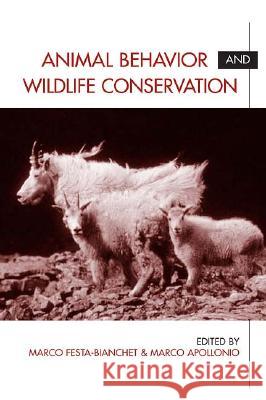Animal Behavior and Wildlife Conservation » książka
Animal Behavior and Wildlife Conservation
ISBN-13: 9781559639583 / Angielski / Twarda / 2003 / 322 str.
Efforts to conserve wildlife populations and preserve biological diversity are often hampered by an inadequate understanding of animal behavior. How do animals react to gaps in forested lands, or to sport hunters? Do individual differences - in age, sex, size, past experience - affect how an animal reacts to a given situation? Differences in individual behavior may determine the success or failure of a conservation initiative, yet they are rarely considered when strategies and policies are developed. Animal Behavior and Wildlife Conservation explores how knowledge of animal behavior may help increase the effectiveness of conservation programs. The book brings together conservation biologists, wildlife managers, and academics from around the world to examine the importance of general principles, the role played by specific characteristics of different species, and the importance of considering the behavior of individuals and the strategies they adopt to maximize fitness. Each chapter begins by looking at the theoretical foundations of a topic, and follows with an exploration of its practical implications. A concluding chapter considers possible future contributions of research in an











